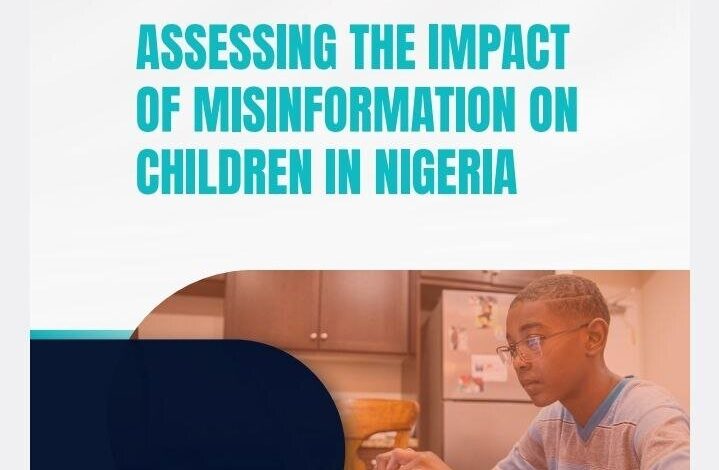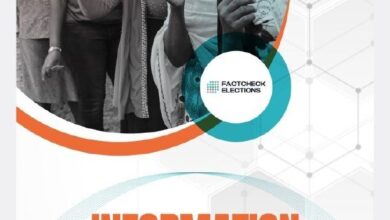DOWNLOAD: Assessing the Impact of Misinformation on Children in Nigeria

Misinformation has become a pressing concern globally, with significant implications for various aspects of society. This study aims to assess the impact of misinformation on children in Nigeria. Nigeria, a country with a large population of children, faces unique challenges due to the spread of misinformation through various mediums, including social media, traditional media, and word-of-mouth. According to data from UNICEF, Nigeria is a country of the young with almost half the entire 180 million strong population, 46 percent, currently under the age of 15.
This research will employ a mixed-methods approach, combining qualitative and quantitative methods to gather comprehensive data. The study will include surveys to gain insights into their experiences, perceptions, and responses to misinformation. Additionally, media analysis will be conducted to identify prevalent forms of misinformation targeting children. The findings of this study are expected to shed light on the ways misinformation affects children in Nigeria. It will examine the impact on their cognitive development, emotional well-being, and social interactions. Moreover, the study will explore the role of education in addressing and mitigating the effects of misinformation and identify strategies for promoting media literacy among children.
The implications of the study will contribute to the development of effective educational interventions and child protection policies. It provides valuable insights for educators, policymakers, and child protection agencies in designing curricula and programs to equip children with critical thinking skills, media literacy, and resilience to misinformation. The research also highlights the importance of collaboration between schools, parents, and the government in fostering a safe and informed environment for children.
Click here to download the research

